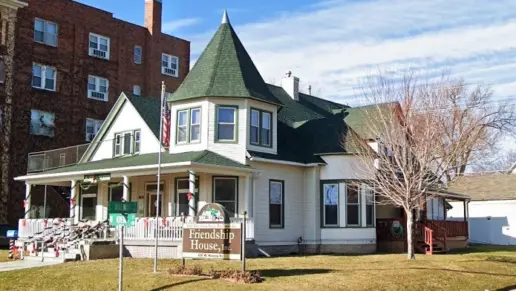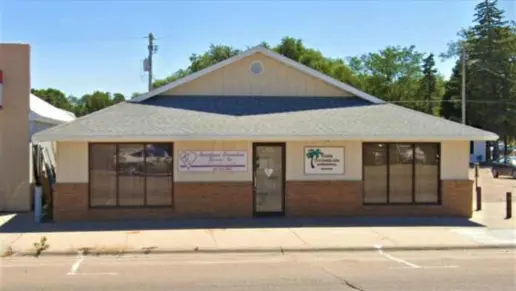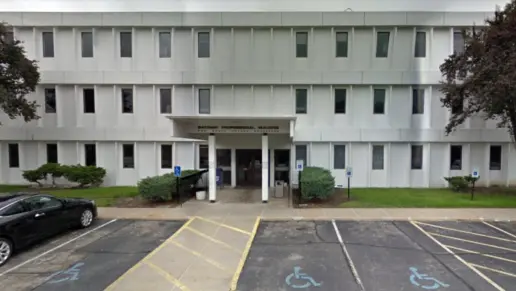About the Facility
Nebraska Mental Health Centers offer comprehensive services for those individuals from all ages who are struggling with mental health and/or substance abuse issues. Services include individual, group, family/couple therapy. Nebraska Mental Health Centers is located at Fremont, Nebraska.
The main mission of Nebraska Mental Health Centers is to provide comprehensive mental health services for those children, teens, adults and families in need of help.
For those with substance abuse issues, they offer two levels of care including outpatient and intensive outpatient program.
Nebraska Mental Health Centers offers assessments for all ages, the assessments include academic, social, intellectual, psychological, forensic and medical psychology evaluations.
Additionally, they offer substance abuse evaluation and treatment that includes adult and adolescent intensive outpatient program and an aftercare planning.
 Treatment
Treatment
 Alcoholism
Alcoholism
Alcoholism is typically characterized by an inability to control alcohol consumption, withdrawal symptoms when drinking stops, and impairment in the ability to socialize and work. Recovering from alcohol addiction is a long process that begins with alcohol rehab in Nebraska. It requires applying techniques that are learned through evidence-based counseling, mutual-support groups, and other related therapies.
 Drug Addiction
Drug Addiction
During drug rehab in Nebraska, you’ll participate in therapies that address the many issues that contribute to addiction. Treatment includes physical, mental, emotional, and relational aspects. These methods provide the tools you need to achieve long-term recovery.
 Dual Diagnosis
Dual Diagnosis
Dual-diagnosis addiction treatment programs in Nebraska offer specialized care for individuals with co-occurring substance use disorders and mental health conditions. Outpatient, inpatient, and partial hospitalization levels of care are available. Clinicians offer a robust treatment plan encompassing evidence-based therapies, like cognitive behavioral therapy, or dialectical behavioral therapy, or motivational interviewing, together with family counseling, educational groups, and recovery meetings, to address both disorders and enhance mental health and well-being.
 Mental Health and Substance Abuse
Mental Health and Substance Abuse
In Nebraska, dual-diagnosis rehabs provide comprehensive care for individuals facing both mental health and substance abuse challenges. Outpatient and inpatient programs generally include individual and group therapy, recovery support groups, dialectical behavioral therapy, trauma treatment, and skills development groups to treat both disorders successfully. Other supportive recovery services like medical detox, 12-Step recovery meetings, and aftercare support may be available to further support you in sustaining your recovery.
 Opioid Addiction
Opioid Addiction
Opioid rehabs specialize in supporting those recovering from opioid addiction. They treat those suffering from addiction to illegal opioids like heroin, as well as prescription drugs like oxycodone. These centers typically combine both physical as well as mental and emotional support to help stop addiction. Physical support often includes medical detox and subsequent medical support (including medication), and mental support includes in-depth therapy to address the underlying causes of addiction.
 Insurance and Financial
Insurance and Financial
Medicaid
Private insurance
Self-pay options
Financial aid
Medicare
Military insurance
 Programs
Programs
-
Adolescence program
-
Adult program
-
Elderly program
-
Program for men
-
Program for women
-
Young adult program
 Levels of Care
Levels of Care
 Outpatient
Outpatient
Outpatient rehabs are often ideally suited for clients exiting intensive inpatient care, those who are medically stable, and those not at an elevated relapse risk. They also offer flexibility for clients who may be unable to leave their work or family to receive inpatient care. Many outpatient treatment centers provide a full suite of services, including recovery education, medication assisted treatment (MAT), and individual, group, and family counseling. Ancillary services, including peer coaching and vocational training, are widely available.
 Medically Assisted Detox
Medically Assisted Detox
Medical detox is the process of removing alcohol and drugs from your body in a medically supervised environment and helping manage withdrawal symptoms. If you’ve become dependent on alcohol and some drugs (like benzodiazepines and opioids), quitting on your own can be uncomfortable and even dangerous. In an inpatient environment, you will be monitored by a team of medical professionals who will help keep you as safe and comfortable as possible throughout the process.
 Intensive Outpatient
Intensive Outpatient
Intensive outpatient programs (IOP) are designed to evolve with clients’ evolving needs. Most programs provide between nine and 20 hours of care weekly, with the frequency and intensity of treatment gradually decreasing as clients grow stronger and more stable in their recovery. Intensive outpatient rehabs specialize in myriad treatment modalities, including medication assisted treatment (MAT) for those in alcohol and/or opioid recovery, addiction counseling, recovery-focused life skills training, and evidence-based holistic care.
 Intervention Services
Intervention Services
Intervention services helps family or friends of addicts stage an intervention, which is a meeting in which loved ones share their concerns and attempt to get an addict into treatment. Professional intervention specialists can help loved ones organize, gather, and communicate with an addict. They can guide intervention participants in describing the damage the addict's behavior is causing and that outside help is necessary to address the addiction. The ideal outcome of an intervention is for the addict to go to rehab and get the help they need.
 12-Step
12-Step
12 step programs are based on a treatment model combining peer support with personal growth. The 12 steps of recovery deploy spiritual principles to promote participants’ psychological and emotional healing, enabling them to identify and address the origins of their addiction, accept responsibility for their life choices, and relinquish control over that which cannot be changed. Religious affiliation is not required, and most meetings are non-denominational, though some formats, such as Celebrate Recovery! are rooted in Biblical principles.
 Aftercare Support
Aftercare Support
Completing a drug or alcohol rehab program shouldn't spell the end of substance abuse treatment. Aftercare involves making a sustainable plan for recovery, including ongoing support. This can include sober living arrangements like halfway houses, career counseling, and setting a patient up with community programs like Alcoholics Anonymous (AA) or Narcotics Anonymous (NA).
 Clinical Services
Clinical Services
Couples Therapy
Whether a marriage or other committed relationship, an intimate partnership is one of the most important aspects of a person's life. Drug and alcohol addiction affects both members of a couple in deep and meaningful ways, as does rehab and recovery. Couples therapy and other couples-focused treatment programs are significant parts of exploring triggers of addiction, as well as learning how to build healthy patterns to support ongoing sobriety.
Family Therapy
Research clearly demonstrates that recovery is far more successful and sustainable when loved ones like family members participate in rehab and substance abuse treatment. Genetic factors may be at play when it comes to drug and alcohol addiction, as well as mental health issues. Family dynamics often play a critical role in addiction triggers, and if properly educated, family members can be a strong source of support when it comes to rehabilitation.
Group Therapy
Group therapy is any therapeutic work that happens in a group (not one-on-one). There are a number of different group therapy modalities, including support groups, experiential therapy, psycho-education, and more. Group therapy involves treatment as well as processing interaction between group members.
Individual Therapy
In individual therapy, a patient meets one-on-one with a trained psychologist or counselor. Therapy is a pivotal part of effective substance abuse treatment, as it often covers root causes of addiction, including challenges faced by the patient in their social, family, and work/school life.
Trauma Therapy
Trauma therapy addresses traumatic incidents from a client's past that are likely affecting their present-day experience. Trauma is often one of the primary triggers and potential causes of addiction, and can stem from child sexual abuse, domestic violence, having a parent with a mental illness, losing one or both parents at a young age, teenage or adult sexual assault, or any number of other factors. The purpose of trauma therapy is to allow a patient to process trauma and move through and past it, with the help of trained and compassionate mental health professionals.
 Settings and Amenities
Settings and Amenities
-
Private setting
 Contact
Contact
2951 N. Clarkson St.
Fremont NE, 68025


